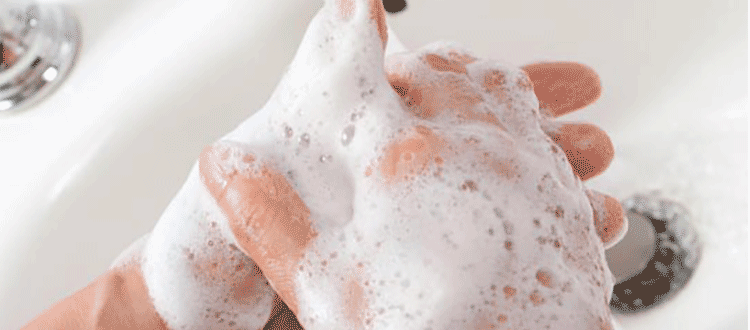Three Things to Know About FDA’s Recent Ban on Triclosan
 |
|
Alex Scranton |
In September, the FDA issued a final rule banning the use of triclosan and 18 other less commonly used antibacterial chemicals from household antibacterial soap products. This is great news in that it will eliminate these unnecessary and toxic chemicals from a lot of household products, reducing exposure to both humans and the environment. But there are three important things to know about this ruling:
1. Triclosan has not been completely banned.
This rule only applies to antibacterial soap used in a household setting. So you can still find it in toothpaste, deodorant, dish soap or other non-soap products you may use in your home. The rule also does not ban the chemical from products used in institutional settings meaning you may still find triclosan in handsoap in hospital settings, food preparation areas, etc.
2. The long-held claim that washing your hands with antibacterial soap at home will do a better job of killing harmful germs and thus make you healthier – has been exposed as a sham.
The crux of this FDA rule is the finding that the companies making antibacterial soap couldn’t actually prove that adding antibacterial chemicals to soap makes any difference to your health. Keeping clean is certainly a healthy thing to do. Washing your hands regularly has been proven many times to reduce your chance of getting sick. But adding harsh chemicals to those soaps which can kill germs doesn’t actually help. In fact, given the toxicity of these chemicals, they could be making our health and our environment worse off. It’s a hard one to swallow, because the focus on killing germs to promote health is so prevalent in our society. And truly, the cleaning industry is having the hardest time of all accepting the reality of the data. In the recent press release from their trade association they still claim:
“Washing the hands with an antiseptic soap can help reduce the risk of infection beyond that provided by washing with non-antibacterial soap and water.” (American Cleaning Institute, 9/2/16)
Unfortunately, no, that’s not true. As the FDA succinctly put it in their press release:
“Consumers may think antibacterial washes are more effective at preventing the spread of germs, but we have no scientific evidence that they are any better than plain soap and water,” said Janet Woodcock, M.D., director of the FDA’s Center for Drug Evaluation and Research (CDER). “In fact, some data suggests that antibacterial ingredients may do more harm than good over the long-term.” (U.S. Food and Drug Administration, 9/2/16)
3. There is much more to come from the FDA on antibacterial chemicals…
The FDA is still working on determining the safety of antibacterial chemicals. There are three more chemicals that are used in antibacterial soaps that still need investigating. The FDA has given the cleaning product industry an additional year to provide the data that proves that adding these chemicals to hand soap or body wash make you healthier that just using soap and water. The chemicals are benzalkonium chloride, benzethonium chloride and chloroxylenol. In particular, the FDA has asked the industry to provide studies assessing the potential for these chemicals to cause cancer, reproductive and developmental harm and hormonal effects. Amazingly, despite these products being on the market for years, little basic research has ever been conducted before for these chemicals. Benzethonium chloride is of particular concern because it is added to certain feminine washes, even though the manufacturers have no idea how well it is absorbed vaginally and if that exposure might cause reproductive, developmental or hormonal effects! It will be interesting to see what data the industry is able to provide in the next year. We will be watching!
Also the FDA is working on determining the efficacy and safety of antibacterial chemicals used in hand sanitizers, so we will also keep you updated as that effort moves forward, and let you know of opportunities to give the FDA your feedback!
Until then – to keep healthy, wash your hands regularly with plain old soap and water. Keep reading labels to avoid triclosan, don’t use feminine washes that contain benzethonium chloride, and use disinfecting chemicals sparingly if at all. To read more recommendations on how to avoid disinfectant products see our Disinfectant Overkill fact sheet here.
To our health!





